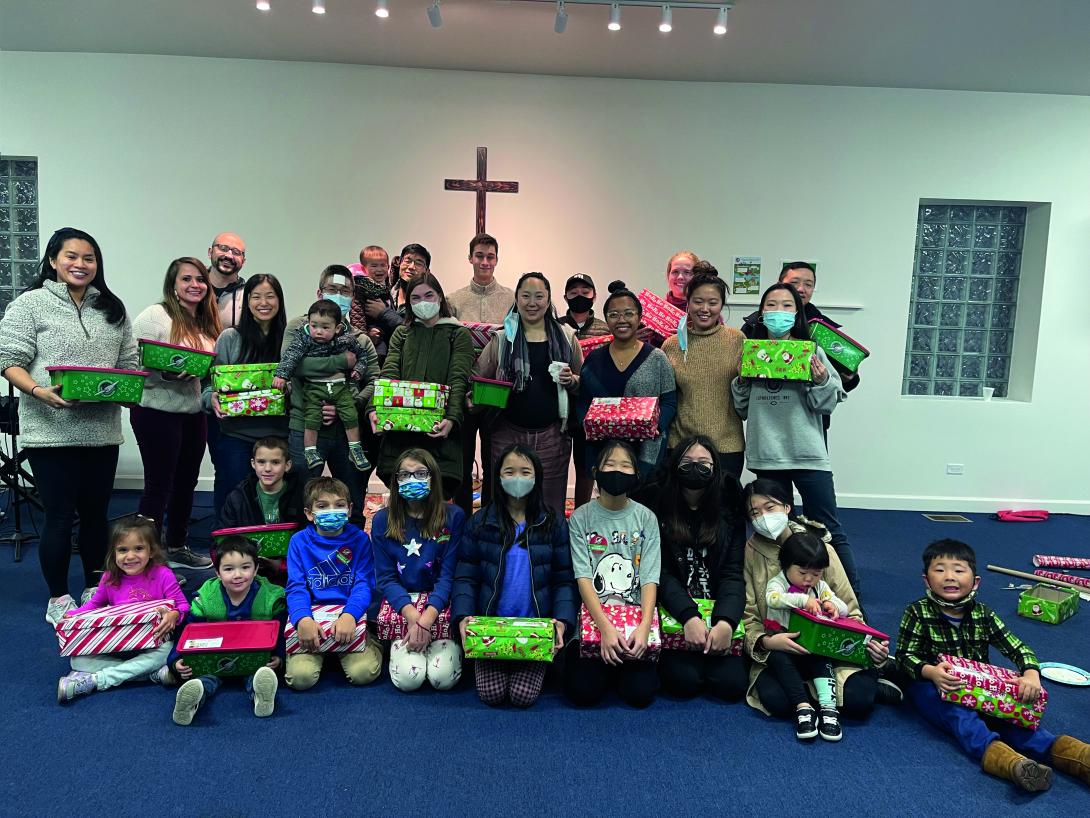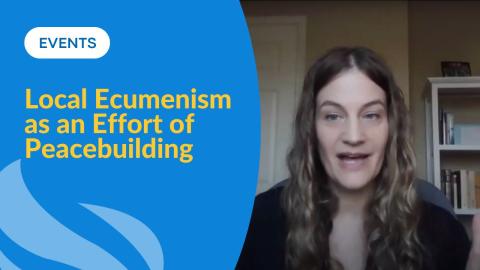
Photo Courtesy of Rev. J. Daniel Yoon
“Wait a minute, I thought they were Catholics… why are they sounding more like us Protestants?” Those thoughts streamed through my head while listening to Paloma Cabetas (former co-director of Focolare in North America) as she offered an inspiring introduction to the teachings of Chiara Lubich to our predominantly Protestant Evangelical group of young leaders.
This life-changing encounter marked my first with Focolare. Not only that, it launched a 10-year journey of practicing Christ’s call to unity in my own life and stirred within me a growing commitment to pass on this charism of unity to the next generation.
As Paloma completed her talk that day entitled, “10 effects/fruits of living out the Word,” she ended with the quote from Chiara Lubich, “Wherever a single Christian lives the Word, even the desert will blossom.”
It was a beautiful imagery to consider in my own life, because my life and ministry as a Korean-American Protestant Evangelical Christian has felt at times like trying to cultivate a fruitful garden in a dry and parched desert.
Ironically, members of my particular Christian tradition have prided themselves in “living out the Word” in every aspect of our lives—“Go back to the Bible!” was our mantra. And despite such a focus on studying Scripture and teaching the Word to others, our Christian communities were facing a collective spiritual desert. We were thirsty for more.
Why, I wondered? Over time, I came to a growing conviction through my friendship with the Focolare that this commitment to live out the Word needed to flow from a deep wellspring of unity based on Jesus’ prayer, “That they may all be one” (Jn 17:21).
Take the call to unity seriously
Intuitively as a child growing up in a Korean Protestant church in the U.S., I’ve always felt that we were never really taught to take seriously Jesus’ prayer for unity in John 17:21. Perhaps “Christian unity stuff” was viewed suspiciously as well-meaning efforts that only ended up compromising the Gospel, or got compartmentalized away into ancillary church programs like the “ecumenism committee.”
Actually, my Korean church experience seemed to be characterized by never-ending church splits and relational divisions among members. And as young people, we would often tell a joke about that tragic reality and say something like this as a farewell greeting to one another: “Well, gotta go now! I’m going to make like a Korean church… and split!”
Increasingly, it is my conviction that the healing balm for the Korean Church is to take seriously Jesus’ prayer for unity and living out the Word of Christ, “That they all may be one.”
Living for unity at the University of Chicago
I currently serve as a campus minister for University Bible Fellowship (UBF) in the Hyde Park neighborhood of Chicago. University Bible Fellowship is a Protestant evangelical collegiate movement that originated in South Korea and eventually spread globally over the past 60 years.
My Korean immigrant parents and their generation came to the U.S. as UBF missionaries to help American students study and live out the Word.
When I got to know the Focolare and their ecumenical spirit, I was struck by certain similarities of the UBF movement and the Focolare. Both movements emerged from the ashes of war: Focolare emerging from the conflict of World War II; UBF from the Korean War. Both movements had women as their founders, Chiara Lubich with the Focolare, Sarah Barry with UBF. Both movements spread internationally as a result of their respective charisms: Focolare’s work in helping others encounter Christ through her charism of unity, UBF’s work in helping others encounter Christ through her charism of teaching Scripture.
It is my personal desire to integrate the charisms of these movements in my own life and ministry as a college professor and campus minister.
Building relational unity
One way I try to live out the charism of the Focolare is through the intentional practice of building relational unity among the Christian campus ministers at the University of Chicago.
When I first arrived on campus nearly 18 years ago, the place was kind of a mess when it came to collaboration among Christian groups. I often joked that you couldn’t say that students would not so much know that “we are Christians by our love,” but more by our “glove”—the boxing gloves we used against each other as each group was competing against each other for more “market share” of the student ministry.
Eighteen years later, I am privileged to witness a new movement of Christian unity on campus, including Protestant and Catholic campus ministries, as we work together in friendship, co-sponsor one another’s ministry events, pray together, and learn to highlight and respect one another’s unique ministry strengths to students and faculty.
Even with the Covid-19 pandemic introducing new challenges to campus ministry, I see that the relationships among the various Christian ministries on campus have only strengthened as a result of the challenges of the pandemic.
Honor each other’s ministry
As I reflect back over this positive shift in the spiritual atmosphere on the campus of the University of Chicago, I believe the origin of this movement of Christian unity began with very simple spiritual practices: friendship-building over meals, praying together over coffee, and “calling out the gold” in one another by finding ways to honor what each ministry is doing on campus.
Personally, I learned these lessons from the Focolare and my friend Dr. John Armstrong, one of the founders of the Initiative, a covenanted community committed to practicing and living Christian unity in the mission of Christ, and an awardee of the Luminosa Award for Christian Unity. I learned from these friends how important it was to patiently build relational unity even among those divided by doctrinal disagreements.
Increasingly I am seeing the culture of U.S. college campuses shifting with respect to their posture toward Christianity. Before, students might have been curious about “those Christians” and their “odd” beliefs. Now the word “Christianity” or “Christian” conjures up negative connotations, prejudices and outright hostility.
Students I work with seem less interested in the theological and doctrinal reasons why there are so many “divisions” in Christianity. To them, Christianity in daily life seems more tied to political ideologies, culture-war positions, or political party affiliations, rather than about following a person who embodies love and unity for all humanity.
In this contemporary cultural climate, students may be less interested in pursuing an “ecclesiastical” ecumenism for the sake of resolving theological or doctrinal disagreements—as important as they may be. But I personally believe they are longing to experience an “incarnational” ecumenism—a relational unity that is embodied and practiced in the local context.
This incarnational ecumenism is one where they can witness Christians and those of other faiths working across differences (whether racial, religious, socioeconomic, generational, ideological, political), and where those efforts are contributing tangibly and collectively to a just society.
In some ways, I see today’s students intuitively agreeing with what Pope Francis has shared in 2014, “Ecumenism is a road, a road to be taken together, not only an expectation. Let us not wait until the theologians agree, then be together, we should already now take the road together” (50th anniversary of Unitatis redintegratio, the Vatican II decree on ecumenism).
So on my particular campus, I like to ask my students, “What is the unique road we can take together now in our neighborhood, across all our various differences, that will contribute to a kind of just and flourishing community in our midst?”
They inevitably come up with various practical initiatives and tangible ways of how Christians especially can work together to address the concrete social and spiritual crises they are concerned about in life. So I’m learning to humble myself, listen carefully to their passions, and partner with our young people on initiatives which I normally would not find myself doing on my own.











